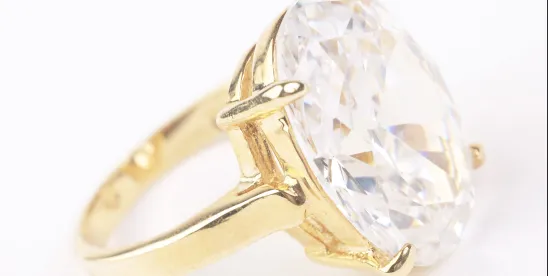A Massachusetts couple was happily engaged—until they weren’t. Now, the fate of their $70k engagement ring is pending before the Massachusetts Supreme Judicial Court (SJC), potentially paving the way for changes to decades-old law some see as outdated and sexist.
The SJC heard from lawyers representing the plaintiff and defendant in September 2024. During oral argument, the justices expressed discomfort at courts needing to step in when engagements go wrong, a signal that the SJC may be poised to decide that Massachusetts law is due for revision.
According to court documents, the former couple began dating in 2016. A year later, the plaintiff proposed to the defendant with a Tiffany ring valued at over $70,000. But their engagement soon soured, and their breakup spiraled into a lawsuit, with the plaintiff demanding the ring back.
Massachusetts law follows a traditional approach to engagement rings. Unlike most gifts, they are “conditional,” so when an engagement ends, the engagement ring goes back to the person who gave it—unless that person was at fault. That’s been the rule since the SJC decided De Ciccio v. Barker back in 1959. But what exactly “fault” means has proven far more unclear.
The issue of fault had brought the plaintiff and defendant’s case from the Plymouth County Superior Court to the Massachusetts Appeal Court in 2023. The plaintiff claimed the defendant had been verbally abusive and accused her of cheating based on text messages alluding to her “playtime” with another man while the plaintiff was away in Connecticut. The defendant denied the allegations.
The Appeals Court agreed with the defendant but ultimately sided with the plaintiff. The plaintiff had ended their engagement based on “a mistaken belief” that the defendant cheated, Justice Sabita Singh wrote, but the evidence overall was “insufficient” to find the plaintiff “at fault for the parties’ separation.”
Justice Singh explained the court’s ruling as being faithful to current law but went on to question whether a fault-based rule for engagements made sense. In most other states “a consideration of fault has no place in determining ownership of an engagement ring,” Justice Singh noted. A decision to change that rule, however, would “have to come from the S[JC] or the Legislature.”
Justice James Milkey’s partial dissent made the point even more bluntly. He credited the plaintiff’s argument that applying “notions of fault” is “grounded in outdated, sexist norms,” as is “viewing engagement rings as conditional gifts” in the first place. “Perhaps it is time to view a gift of jewelry as indeed a gift,” Justice Milkey wrote, and “not . . . as security for the wedding”
During the recent oral arguments at the SJC, Justice Kafker appeared to agree with Justices Milkey and Singh that there may be good reasons to reconsider De Cicco’s fault-based rule. “We don’t impose fault in divorce . . .We wanna stay out of that business, right?,” Justice Kafker posed, “[But] conditional gifts can be fine . . .? That was probably the error in De Cicco.”
The SJC will likely decide the fate of the couple’s $70k engagement ring—and the law of engagement rings in Massachusetts as a whole—sometime in the next four to five months.




 />i
/>i

